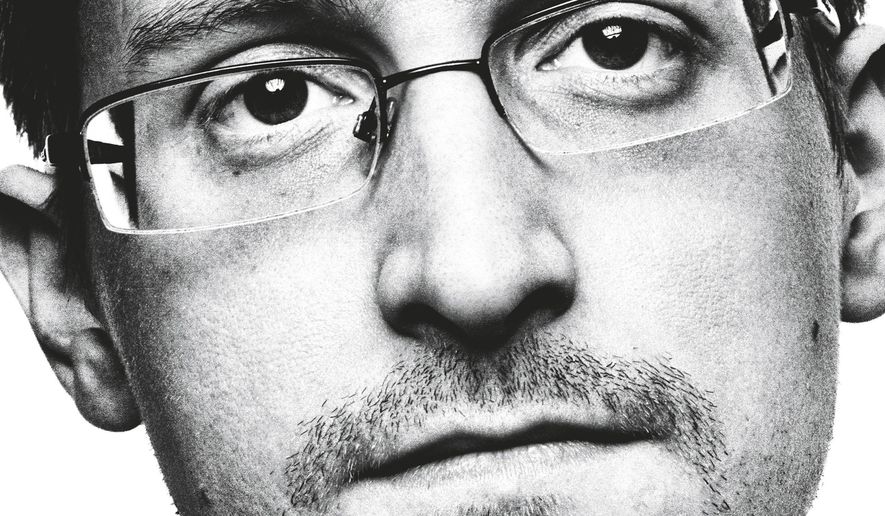“Permanent Record,” Metropolitan Books, by Edward Snowden
Edward Snowden is mostly self-invented, the fruit of his own ingenuity. If hacking, purely defined, consists of devising the simplest, most elegant way of getting what you want, then Snowden excelled at it, beginning when he set back every clock in the house at age 6 so he could stay up past bedtime.
Snowden would later hack his way through adolescence. He calculated the minimum amount of work needed for passing grades in high school. The scheme worked until Honest Ed explained it to a teacher.
Such stories enliven the new memoir, “Permanent Record,” from the computer whiz who exposed secret U.S. government mass domestic surveillance six years ago.
The former CIA and National Security Agency systems engineer is now a digital privacy activist living in exile in Russia, charged with Espionage Act violations for which he says his conscience offered no other option.
Born in 1983, Snowden grew up on the early internet, intoxicated by its seemingly limitless potential for good. Before innocence was lost, it represented for him America’s true values. Patriotism was ingrained in Snowden’s upbringing. His parents quietly exercised it clocking in daily at work. Dad was a Coast Guard techie. Mom held various government jobs.
Coming-of-age memoirs like Snowden’s typically recount journeys of moral discovery. That is the book’s strength. Others, most notably journalist Glenn Greenwald and filmmaker Laura Poitras, have already better chronicled the white-knuckled drama of how the most famous whistleblower since Daniel Ellsberg persuaded them to meet him in Hong Kong in 2013 so he could lift the lid on the NSA’s mass surveillance of U.S. citizens.
What Snowden does well is define the promise and dangers of digital technology and the wacky alchemy that grants system architects and administrators like him extraordinary power over people’s lives. His clear-cut explanations of complicated yet vital phenomena like the TOR privacy browser and encryption are especially instructive.
Snowden most regrets his atavistic reaction to 9/11, how the 18-year-old Ed became “a willing vehicle of vengeance.” He enlists in the Army only to break his leg in basic training. Then he watches from the inside as U.S. agents kidnap and torture foreigners.
Engrossing is Snowden’s description of how he used his programming skills to create a repository of classified in-house jots on the NSA’s global snooping - and built a backup system for agency data. Reading through the repository, Snowden begins to understand the extent of his government’s stomping on civil liberties. He becomes sullen, “cursed with the knowledge that all of us had been reduced to something like children, who’d been forced to live the rest of their lives under omniscient parental supervision.”
As he was deciding to blow the whistle, Snowden also came to realize that it wasn’t just the government that was amassing and categorizing our data. The eureka moment came when he met his first internet-equipped “smart fridge.”
Here he was, getting all exercised about U.S. government snooping while surveillance capitalists were collecting incredible dossiers on acquiescent consumers.




Please read our comment policy before commenting.